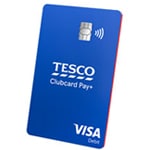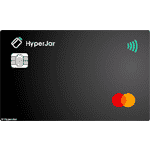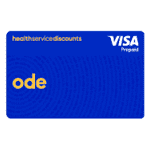Best prepaid cards in the UK 2025
Prepaid credit cards can be a great way to budget, but are they the right option for you? Here's all the info you need to help you decide.
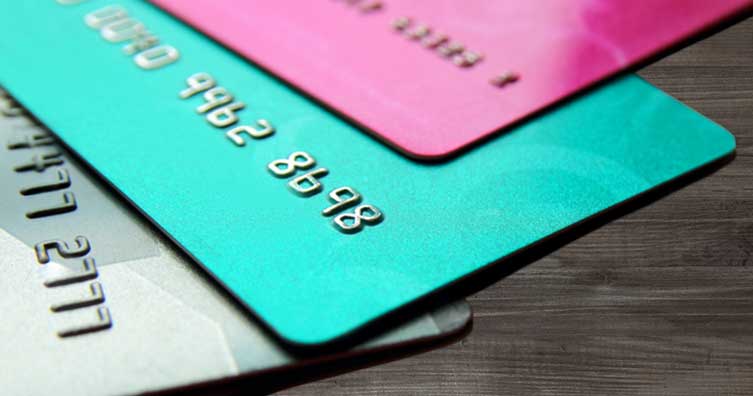
Credit: alexialex, Titus Group – Shutterstock
The concept of a prepaid card might seem a bit pointless to some, but there are benefits to using them. They can really help when it comes to keeping to a budget.
Not only do prepaid cards give you more control over your finances, but they can also make it easier to save money.
However, they're certainly not for everyone. Unlike credit cards, prepaid cards don't offer many perks to those who are already good with money. That's why it's important to do your research and weigh up your options before deciding which option to go for.
What's in this guide?
Best prepaid cards in the UK
Here are the best prepaid cards:
-
Wise
- Pros – Free account, no monthly fees and a cheap and easy way to transfer money abroad and accept foreign currencies.
- Cons – £7 fee for the physical card, only two free ATM withdrawals per month (up to £200) and no cash deposits.
Wise is a prepaid card that's perfect for UK and international spending. It allows you to send money to 160 countries and hold over 40 different currencies. This is perfect for international students, if you travel often or if you do any freelance work for which you receive payment in a different currency.
Wise is a free international debit card and doesn't charge any fees for you to open an account with them, nor do you have to pay any monthly charges.
On the Wise app, you can track your spending and easily send money. You can even get a free European IBAN, US account number and Australian account number if necessary.
-
Clubcard Pay+ prepaid
- Pros – No fees, the ability to earn Clubcard points on all purchases made with the card anywhere that accepts Visa debit cards, FSCS protection and an easy way to save money with the Round Up feature.
- Cons – Need a Clubcard account to apply and you gain fewer points for shopping at shops other than Tesco.
With Clubcard Pay+ from Tesco, you can get a digital prepaid card which you can use via their app. And unlike other prepaid cards, the Tesco prepaid card gives you FSCS protection as it's linked to Tesco Bank.
There are no fees for topping up or using the card. It's also completely free to get – you just need a Tesco Clubcard account. As it won't cost you any extra, it's great to use as a budgeting tool.
On top of that, you'll earn Clubcard points for using the card, even if you don't spend it at Tesco. You get the regular one point per £1 when shopping at Tesco, but you can get one point per £8 when using the card elsewhere.
Another handy feature that comes with this prepaid card is the Round Up savings account. It rounds up your transactions and puts the difference in a special savings pot, making it very easy to save money without really trying.
-
HyperJar
- Pros – Free to sign up, earn cashback and other rewards and comes with bill splitting features.
- Cons – Doesn't let you withdraw cash from an ATM.
HyperJar is a very efficient budgeting tool paired with a prepaid card.
On the app, you can set up different money jars (for anything from groceries and takeout coffee to holidays and birthday presents), which makes it much easier to budget efficiently and put money aside for bigger purchases.
With the Hyperjar prepaid card, you can then spend directly from any jar.
HyperJar also lets you set up Share Jars. Doing so makes it easy to split the cost of bills with your housemates.
There are also some rewards you could qualify for. Brands like FeelUnique and Decathlon offer deals for HyperJar users. Plus, you can get cashback with brands like The Body Shop.
-
Ode
- Pros – Free for the first year, earn over 16% cashback at over 70 retailers, and is available to anyone who volunteers for a charity.
- Cons – Costs £2.99/year after the first 12 months.
The Ode prepaid card is a little different from the other cards on this list. It's available to people who volunteer for charities. If that's you, it's worth checking out.
With Ode, you can get over 16% cashback at loads of stores. Some examples of shops where you can get cashback include Asda, Argos, Boots, Sainsbury's and more.
There are some downsides, however. While the first year is completely free, you'll have to pay a small fee to keep the card every year after that. You also won't be able to make any ATM withdrawals. Plus, there's an inactivity fee of £5 per month, but this only applies to accounts over two years old that haven't been active for 12 months.
How do prepaid cards work?

Credit: UfaBizPhoto – Shutterstock
Prepaid cards work in the same way as any debit or credit card. They are accepted as payment virtually everywhere: online, in stores, restaurants, bars – you name it. Usually, you can use a prepaid card to withdraw cash at an ATM if you need to (although some will charge you for this).
The key difference between a prepaid card and a regular credit or debit card is that, with prepaid ones, there's no overdraft or credit available when your balance hits zero.
Although this can be annoying, the major bonus is that you'll never have any interest to pay back and no charges to catch you out if you go over your overdraft limit (because, of course, you don't have an overdraft). With a prepaid card, you can only spend what you have preloaded or transferred onto the card.
As for actually topping up a prepaid card, you can do this with cash, by phone, online, text or with an app. It depends on the kind of card that you have. Just be aware that there can be additional fees involved depending on the card's terms and how you choose to top up.
You can always check your balance online, and the latest prepaid card technology gives you instant updates and notifications to your smartphone. This way, you know exactly how much and where you're spending your money.
How to get free prepaid cards
Prepaid cards like Wise and Clubcard Pay+ are free to set up and don't come with monthly charges. But it's also not uncommon for companies to offer new customers a prepaid debit card as a reward for signing up or buying a product from them.
This is particularly common among utility companies (like broadband providers) and the values can reach as high as £100, if not more!
We're always on the lookout for offers that come with prepaid cards, so bookmark our deals section to stay in the loop.
App-only prepaid cards
In the last few years, a few app-only prepaid cards have emerged that are hosted by small fintech (financial technology) startups.
However, most of these companies have since gone on to become fully-fledged banks, meaning we can't technically include them in this guide to prepaid cards.
That said, there's nothing to stop you from using a normal bank account as a prepaid card. App-based banks are particularly easy to use as prepaid cards, as a lot of them started that way anyway.
This means they usually have all the technology that made app-based prepaid cards so appealing in the first place. That includes live spending updates, digestible breakdowns of your spending and budgeting help.
Should you get a prepaid card?
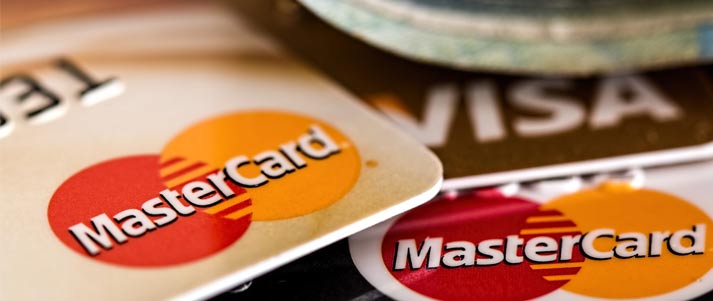
Prepaid cards have their benefits, but they're a lot more useful for some than others. You could consider getting a prepaid credit card if one (or more) of these situations applies to you:
-
You struggle to budget
Prepaid credit cards are perfect for anyone who struggles to stay within budget each month, because you have no choice but to oblige. There's no overdraft or extra money at the bottom of a prepaid card, so you need to keep on top of your finances.
Assign yourself a weekly or monthly budget. Then, pop that money on your card to use for everyday costs. This will encourage you to really think about your day-to-day spending.
Unsure how much your weekly budget should be? Our handy budgeting spreadsheet will help you crunch the numbers.
-
You have a bad credit rating
Most prepaid cards come with a guaranteed acceptance rate, which is great for students who have been declined for a credit card in the past. This can happen if you have a poor credit score.
Some prepaid cards can even help improve your credit rating. Certain cards let you pay a certain amount each month. If you make all the payments successfully, they share the details with a credit report company on your behalf, which will help you improve your rating.
However, it's important to note that any credit card application will appear on your credit report. It doesn't look good if you make multiple applications in a short period – regardless of whether you're accepted or not.
-
You're an international student
Unfortunately, the terms for bank accounts for international students tend to leave a lot to be desired. For example, if you're an international student, you're unlikely to get a 0% overdraft, meaning charges can occur if you ever end up in the red.
Having a prepaid card can be perfect for international students, as banks are happy to issue them on the basis that you'll only be spending your own money. Some cards even allow family members to top the card up from abroad, should you need some financial support or emergency cash.
-
Your parents are involved in your finances

Credit: Monkey Business Images – Shutterstock
If your parents are worried that you're not ready for a full-blown credit card, or you're keen to demonstrate that you don't rinse all your cash on clothes and beer, this is your chance!
Your parents can have access to your spending. Or, they may even agree to top your card up a certain amount each month (they are generally expected to help out financially, after all).
-
You're worried about going over your overdraft limit
If you tend to excessively use your overdraft, a prepaid card is a great way to get used to staying within a budget.
Some prepaid cards will send you a notification when you're onto your last few pennies. That way, you're not left red-faced at the supermarket checkout when your card gets declined while buying toilet paper.
-
You go abroad quite often
Prepaid credit cards can be handy for travelling abroad, especially as you'll only have a certain amount on the card at one time. If your card gets stolen or maxed out, it's not the end of the world.
Just make sure you compare the fees for spending abroad for different prepaid cards first. Some are much better for overseas spending than others.
Prepaid cards versus credit cards
It's worth noting that, in some circumstances, a credit card will actually work out as a better option. This is because, unlike prepaid cards, credit cards can come with lots of added bonuses and perks for those who are already well-off or good at handling their money.
In essence, if you're good at managing your money and paying up for things on time, you'll likely be better off reaping the benefits of a credit card.
The main noticeable differences between a credit card and a prepaid are:
- You can only spend whatever money you put onto a prepaid card, whereas a credit card allows you to borrow extra cash. On this, you usually have to pay a bit of interest if you don't repay in full each month – although 0% credit cards are fairly common too.
- Credit cards are the easiest way to build a good credit rating if you're on time with repayments(!). Prepaid cards, on the other hand, can't generally be used for that. There are only a few prepaid cards that allow you to share details with credit companies. This option is better for people who already have a bad credit rating.
- Whenever you pay for something over £100 with a credit card, you're covered by Section 75 protection. Prepaid cards don't have that security.
- A lot of credit cards have heaps of perks such as reward points, cashback options and air miles. You won't see any of these on a lot of prepaid cards (although cashback is sometimes available).
The important thing to remember is that you should only go for a credit card if you know you're pretty disciplined when it comes to spending.
Our credit card guide has loads of info on the perks, what to look out for, as well as the best credit card offers currently available. If you're unsure of which option to go for, check it out.
Are there any drawbacks of prepaid cards?

Credit: Josep Suria – Shutterstock
There are a few potential downsides of using prepaid cards:
-
Potential security risk
There is a potential security risk involved that, although unlikely, is worth noting.
Essentially, the nature of prepaid cards means that they're not usually owned and run by banks. They're what's called an 'electronic money product'. When you put your money onto your prepaid card, it's stored with a payment processing company rather than a bank.
Therefore, if that payment processing company were to go bust, you'd lose your cash.
For this reason, it's important that you only add money to your card in small-ish doses. It might help to top up once a week (most of the cards mentioned below don't charge for top-ups anyway, so this won't leave you out of pocket). This way, if the company goes bust, you're not likely to lose a lot of cash.
This is sort of how prepaid cards are supposed to work, anyway: you pay in a small weekly or monthly budget and work through that until you're ready for the next instalment.
The Clubcard Pay+ prepaid card is an exception to this, as it comes with FSCS protection. This means that your money (up to £85,000) is covered.
-
Hidden fees
The other main drawback of prepaid cards is the fees. Here's a breakdown of the different charges that could be applied, and what they're for:
- Application fee – As you can imagine, this is like an admin fee for processing your application. This can be anything up to £10, but more often than not this process should be free.
- Monthly fees – Like some bank accounts (though not student accounts), some prepaid cards charge you a small monthly fee. It's not usually more than £5, but it's still something to consider.
- Transaction fee – Some cards charge a fee each time you make a payment.
- Renewal fee – As with most credit cards, prepaid cards need to be renewed every few years. Sometimes there's a small price of around a fiver, but if you top up enough this can sometimes be waived.
- Inactivity fee – Try not to let your card sit totally unused for months. Sometimes, you'll be charged a small monthly fee for not spending.
-
No interest
As prepaid cards (usually) aren't linked to a bank, the money you store on them won't gain any interest. That's why it's better to only store a small amount of money on them. Not only does it give you better protection (see the first point on this list), but it also helps you budget more efficiently.
However, you can earn some interest if you use the Clubcard Pay+ card. While money stored on the card doesn't earn interest, you can use the Round Up functionality to build a savings account.
When using the Clubcard Pay+ card, it automatically rounds up any spending and puts the difference in your Round Up account. On the money in this account, you'll earn a little interest (1.25% AER at the time of writing). You can check out our guide to financial vocabulary for more information on AER.
Five tips for using prepaid cards
Here are some tips to make the most of your prepaid card:
- Set up a weekly or monthly Direct Debit from your main account to set your budget and prevent overspending. Over time, you'll get used to spending the same amount every week, and it'll get much easier to keep within limits.
- Decide if the prepaid card is going to be for all of your expenses (including rent and bills) or just for weekly spending to cover food shops, university books, printer credit, etc.
- If you have generous parents who are happy to offer you some financial support at uni (as the government generally 'expects'), arrange for them to load any money they're kindly donating to your cause directly onto your card.
- Always keep track of any monthly fees or transaction fees that come with your card. If you find there are too many charges or you're not using your card enough, cancel your account to avoid any ongoing fees.
- Zero balance really does mean zero balance on these cards, so watch what you spend.
Are you sure you're getting the best deal on your current account? Check out our guide to the best student bank accounts – if you spy a better deal, get switching.


